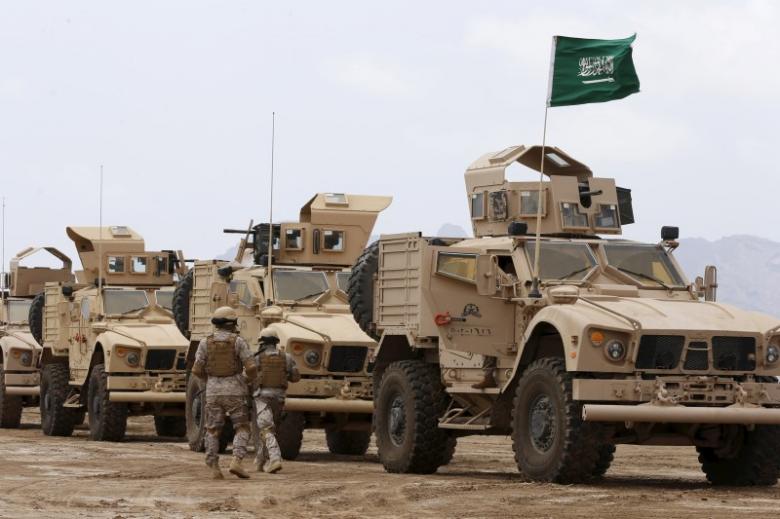The Trump administration is positioning itself to renew sales of precision guided weapon systems to Saudi Arabia, a move originally shelved by the Obama administration.
The State Department has left a proposal for the arms sale with the White House for approval. The measure is seen as another form of the Trump administration taking a hard-line on the actions of Iran, who Saudi Arabia says is a leading threat to regional stability.
The weapons will likely be used in the ongoing Yemeni Civil War, in which the Saudi-led Arab coalition is fighting a Houthi insurgency which seeks to establish control over Yemen. The United States has accused Iran of supporting the Houthi rebels with weapons and other means.
A recent unsuccessful missile attack on a U.S. Navy destroyer in the Red Sea was cited as evidence of direct Iranian intervention in the conflict on the side of the Houthis. At the time, the Pentagon suggested the missile technology was too advanced to have been attempted solely by the Houthis.
The Saudi-led coalition in Yemen has been accused of attacking and killing civilians while conducting operations, which was the original impetus to cancel the arms sale to the Saudis by the Obama administration.
Critics of that move have noted that a lack of precision guided munitions has not stopped the Saudis from conducting air strikes. If anything, they say it encourages the use of unguided conventional bombs that have a greater chance of errant strikes on civilians.
But the sale of weapons to the Saudis has multiple implications. The Trump administration has made it no secret that Iran poses a significant threat to the region and to American security in general. With the war in Yemen being fought to its current position as a relative stalemate, boosting the Saudi’s military capacity could help push the advantage in their direction. Pushing Iranian influence off the Arabian Peninsula would benefit an American strategy of Iranian containment, and help the expanding counter-terror campaign against Al-Qaeda in the Arabian Peninsula.
Regardless of whether the Trump administration sells these weapons to the Saudis or not, it’s unlikely Saudi Arabia is losing its determination to rid Yemen of Iranian influence. The only difference it may make is in how long it takes to do it.
Image courtesy of Reuters
Already have an account? Sign In
Two ways to continue to read this article.
Subscribe
$1.99
every 4 weeks
- Unlimited access to all articles
- Support independent journalism
- Ad-free reading experience
Subscribe Now
Recurring Monthly. Cancel Anytime.











COMMENTS